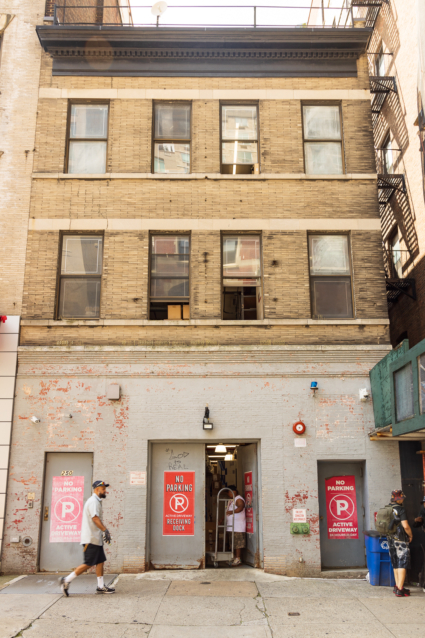The five-story structure, originally called the Broadway Studio Building, was built in 1899 to provide studios for artists. It had already had a colorful history when, in 1979, two pairs of brothers — the Zabars and the Friedlands (who were in commercial real estate) — bought it together. But now, the two families are engaged in a bitter legal wrangle over the building’s fate, fracturing their decades-long alliance.
According to a complaint filed by the Friedlands in July, 2022, they want to sell the building and the Zabar brothers, both in their 90s, do not. The Friedlands claim that the Zabars have “steadfastly refused to engage in meaningful discussions,” describing their stance as “commercially unreasonable.”
But in a responding affidavit in September, 2022, Stanley Zabar, who took over the family business with his brother Saul in 1950, explained that the purchase in 1979 was made with a verbal understanding with the Friedland brothers, Lawrence and Melvin, “that we would exclusively operate the property commercially for as long our families were connected to the property.”
In his affidavit, Zabar states that they “relied on the expertise of the Friedland family as property managers to maintain the building and maximize income from the Property,” which, according to the Friedlands’ affadavit, they did through a Friedland-related company and received a 3% fee on rentals for those services.
For many years, the arrangement was “extremely profitable,” Zabar’s affidavit states. In 2019, the gross annual rent was nearly $5 million. But by 2021, the building’s revenue had fallen by close to 40% (and has fallen further since). At first, the Zabars, trusting their partners, “assumed it was the economy until a real estate broker told us that the Friedlands were not renting space in the building…as they had been advising potential tenants that they expected to demolish [it].”
That is what Randi Stone said she was told when she rented a space for her pilates business in 2016. Stone had to leave in June, 2023, after being given two options: pay nearly double her original rent and stay in the building on a month-to-month basis, or move. In a phone interview with WSR, Stone said, due to the recent move, she lost a major investor, instructors who took their clients with them, the $20,000 she spent on upgrading the studio, and $10,000 to improve her new, much smaller studio nearby. “Now it’s a smaller business,” she said, “and I’m having to turn away clients because I can’t accommodate demand.”
Stanley Zabar stated in his affidavit that sometime in 2016 William Friedland, the son of Lawrence and a principal at the firm, approached him about developing the property “as a residential tower.” Zabar claims that he then met with Lawrence Friedland and “told him that Zabar’s was not interested.” According to Zabar’s affadavit, the elder Friedland said “that William had convinced him that a multiple dwelling was a safer investment for them, and he was not going to do something his son was against, even if it meant breaking his 43-year agreement with me.” According to papers filed, the Friedlands argue that the agreement is “unenforceable because it was not in writing.”

Zabar explained his opposition in detail in the affidavit and counterclaim. First, Zabar’s leases a small adjacent building that came with the purchase, 250 West 80th Street — one of the city’s first parking garages, built in 1902 — that is where they conduct their online and catalog business, which according to Zabar makes up nearly a quarter of its revenue. And they invested over $1.5 million on upgrades and improvements to the building.
The Zabars also thought a residential tower “was too risky and would be detrimental to Zabar’s reputation,” Stanley Zabar wrote. The Zabars see the 2231 Broadway as having played “a substantial part in the cultural history of the Upper West Side.”
In preparation for the development of a residential tower, Zabar claimed that, without their knowledge, the Friedlands “began a campaign to empty out the larger building.”
Toward this end, according to Zabar, William Friedland “demanded that we agree to terminate New York Sports Club’s lease,” years before it was set to expire. Zabar also alleges that they “lured” Verizon to the retail space of their recently built 20-story tower across the street, 222 West 80th, which had been empty for a number of years. Zabar called their tenant poaching “grossly improper” since the Friedlands had a fiduciary duty as the property manager to maximize earnings.
Queries about the case to the Zabars, the Friedlands, and lawyers for both families went unanswered.
Read More:Two Families Battle for the Future of a Broadway Building — and the Neighborhood
2023-07-31 22:49:21
